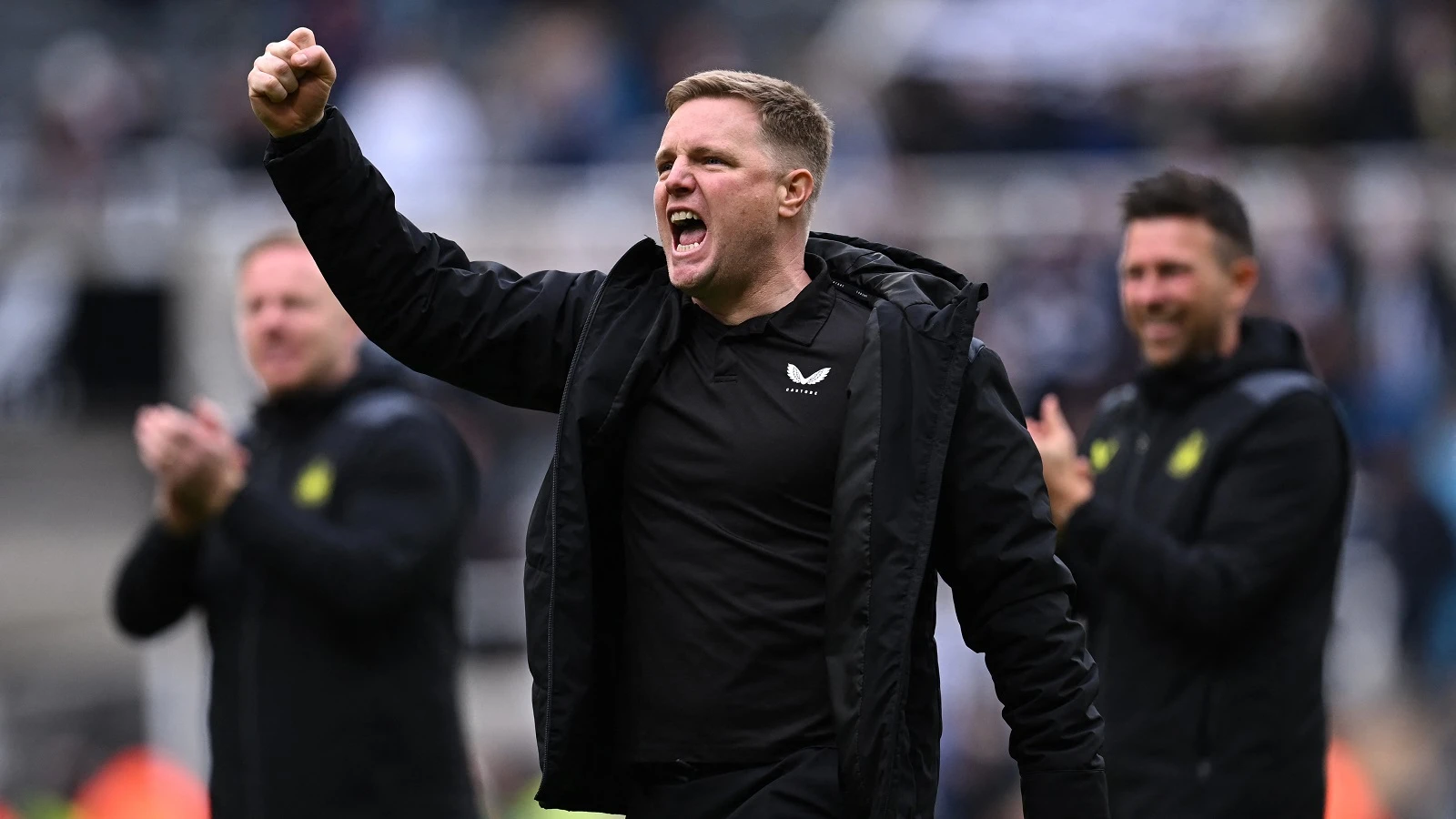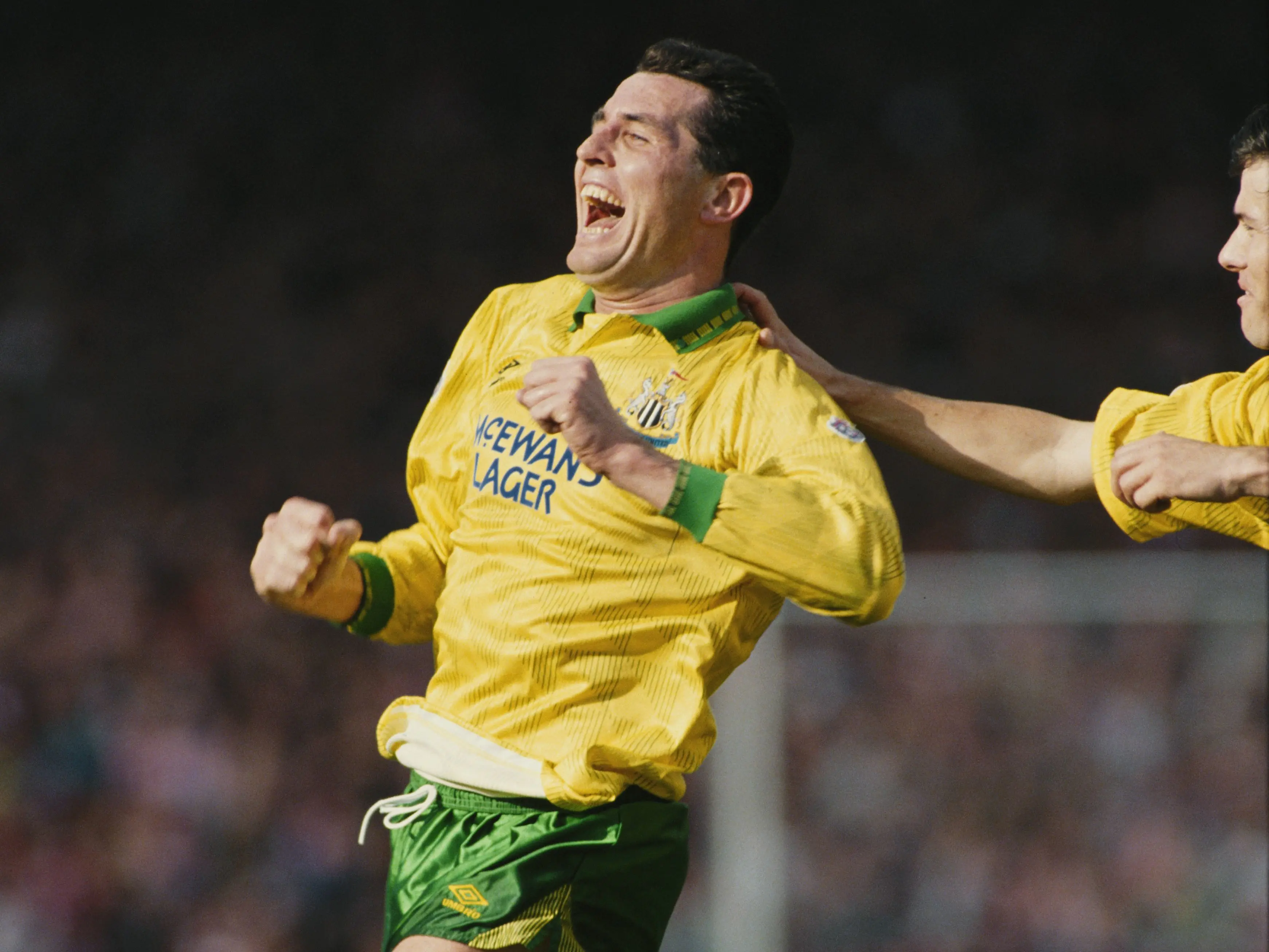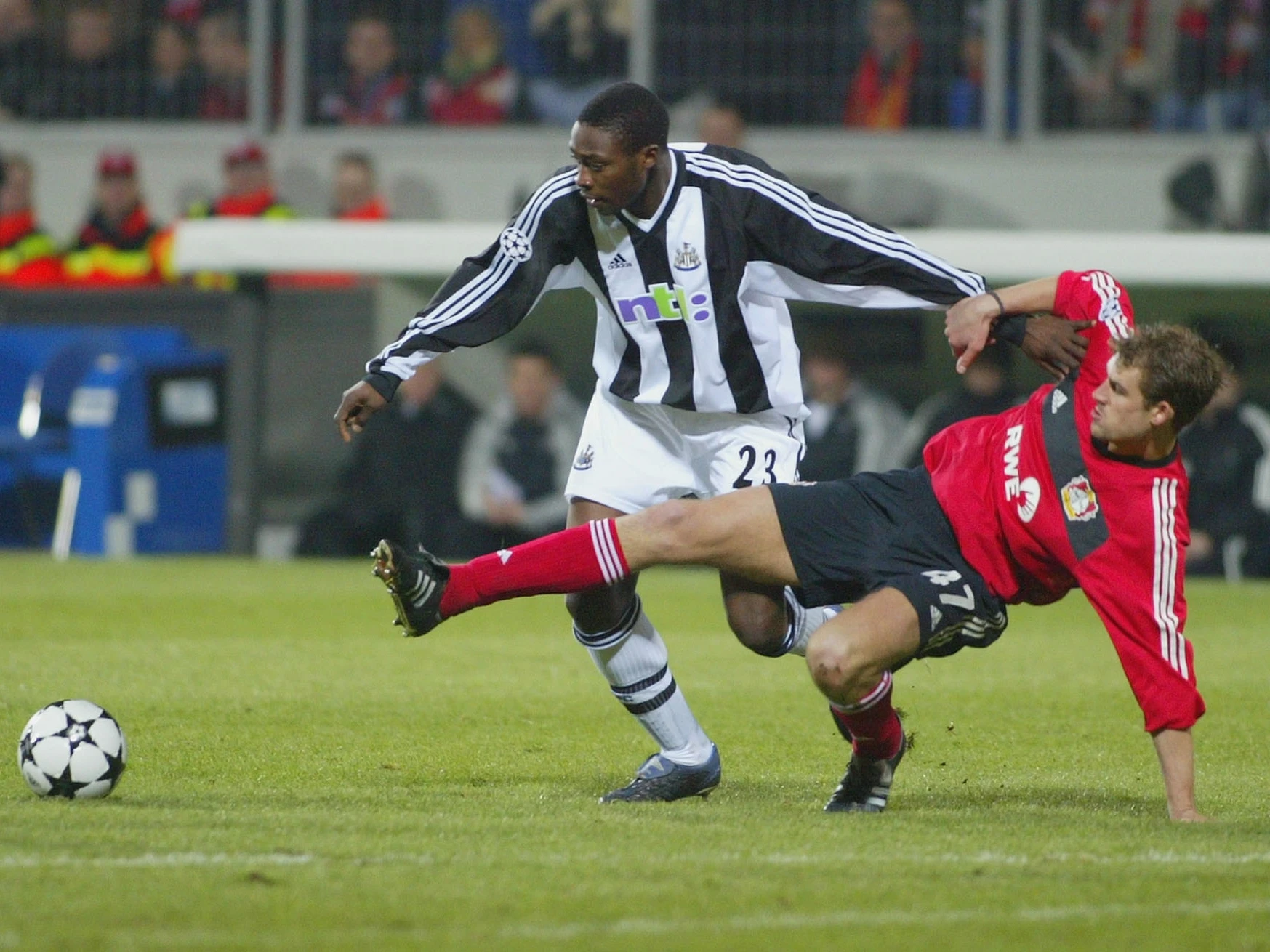"From day one I was just so proud to manage the club. I saw it as a huge moment in my life. That feeling has never gone away. I still absolutely love the job, and I'm more determined than ever to be successful."
Howe reached his league century with the Magpies in their 4-1 win at his former club Burnley last Saturday. It is the latest milestone in what is still a relatively young career. The game has a habit of chewing up and spitting out managers at an aggressive rate so the 46-year-old's longevity - he is fast approaching 700 games in the dugout - is increasingly rare and perspective is prized.
"It's very difficult sometimes, but it's gratitude, it's being very thankful for the position I'm in. It's gratitude for the job you're doing every day," he says. "What I mean by that is even in the difficult moments, even in the perceived tough times, it's being thankful for all the experiences that you're having, because ultimately that's going to make us better and stronger. That's what I've tried to do. I've tried to adopt that attitude in every moment."
This term, his second full one at St. James' Park, "has been intense, to say the least," he nods, eyebrows raised in understatement. There has been a return to the Champions League followed by an "empty feeling" after their group stage exit. There was an FA Cup quarter-final, a first Tyne-Wear derby win in almost 13 years and a run at the top six, beset at various stages by injuries. "And now we're here," on the brink of confirming another European campaign.
These are great days in comparison to some Howe has known in his time in management; he is seasoned enough to have known real strain, as he did when he took over Bournemouth - a club who were gripped by crisis - at the age of 31 in December 2008. In conversation he comes across as erudite, patient, in control, leaning back slightly in his chair across his training ground office desk. Jason Tindall sat at an adjacent table at the start of this interview but has since popped out.
Can this be a lonely job? "It has its lonely moments… I wouldn't necessarily say where I feel like I'm on my own." He pauses. "I would say I don't feel alone, because I've got a really good coaching team with me. We share a lot of those highs and lows together. But I think without my coaching team, it would be a very, very difficult job. That feeling of isolation is never a good thing.
"It's really important we're there for each other. In a long season you have lots of different spells to experience and go through. Because you're doing it together, it gives you a feeling of the team dynamic."
He remembers the requirements he felt as a centre half of some promise in his playing days; the compulsion to be better, the absolute need to do your job well. Doing that led to exhilaration. It is different for him now. "I think then when you have success, it's more of a relief. When you're playing, I think it's more a feeling of elation, if you're able to hit your targets." But relief isn't the same as happiness, or satisfaction. "Relief is not a primary driver - you're not doing the job to get that feeling of relief - but what you are doing is you're enjoying the process and you're enjoying the journey it takes you to get there. I get a tremendous amount of satisfaction from a good week's training, or really good preparation going into a game. I get as much enjoyment out of that part at the end, when you can look back and go, 'we did a good job this week'. You're chasing loads of feelings.
"Another big one for me is trying to work to stop that feeling of disappointment if you don't achieve your objectives. That's a big driver for me. I don't want that feeling. I don't want that, (the) opposite of all the positive emotions. I'm doing everything I can to stop that happening for everybody."
In 2019, halfway through what turned out to be Howe's final season at Bournemouth, he suggested in an interview with The Guardian that some of his drive comes from a fear of "not knowing the answers or feeling I don't know the answers". How much closer has he got, in the half-decade since, to finding them? "It's a never-ending quest, because football's such a game of chance. You're never going to know everything and I don't think people should expect you to know everything," he replies. "But I think what you can expect is that you have a vision and an idea of how the game should be played, and you want to try and get as close as you can to executing that as well as you can. Football will evolve so quickly in the next ten, 20 years and I'm sure the game will look very different then. That's why I'm a firm believer that we all have to consistently keep up with the game, because it moves so quickly."
A game of chance, though? Really? "I think the game of football can swing on big moments and sometimes random moments that you can't predict or plan for, so I think a big part of it is random. But I think what we try to do as coaches is take out a lot of the randomness, if we can, by producing a team that functions really well with a clear plan in every phase and every part of the game, you name it - we should hopefully have prepared for that.
"But I don't think you'll ever fully take that out, because you're dealing with individuals, individual players, who make decisions based on their own experiences."
Advantages are sought in all areas. Last November, Dr. Ian Mitchell started work as the Magpies' head of psychology. Howe felt it was a necessary move, conscious of the breadth of issues a squad of players between the ages of 17 and 35 can have. He recalls the "stigma" around mental matters that pervaded his playing days. "I think that resistance is going now, and quite rightly so. The stresses a player can have now in this league, the Premier League, or for international players, are huge. The demands are big on every level so if at any time any player wants to have a conversation, wants to seek support, for me that's not a weakness - that's an absolute strength. We need to give them that resource and make it as readily available as we can."
The line between approachability and authority is a fine one. Howe speaks about trying to be honest and giving realistic insights, as far as he can, in his dealings with the media, but that openness has boundaries and there are some, too, in terms of his handling of his squad. He says he doesn't actively seek input from players. "I have a clear vision of what I think we need to do. I think if you canvass opinion from the players on a deep level, that can only have negative connotations," he says. "Because we've been doing it a while, and we feel confident in our methods, I don't see a need to ask opinion. I'll give a lot of detail in terms of what I want and I'll have a lot of meetings with the players on a one-to-one level and as a group setting, but not asking their opinions.
"Players ultimately want to be told what they need to do to get in the team, to be successful, to have the best career they can, and I'm paid to give them that information. It's not to say that I'm not open - I believe I'm an open person, and if people want to have conversations with me they can - but I just have a very clear vision of what I want for the team, and how I want my team to play. It's up to me to tell them what I want them to do."
Howe's work ethic is well-documented and he remains all in. Down time is precious. Is he still, as he let slip in March, finding solace in playing the piano? "I'm not having lessons currently. I did have lessons. But my lessons are sort of trying to teach my kids, so I'll play while trying to teach them. They often turn around to me and go, 'how are you teaching me? Because I can play the piano much better than you!' And they do have a valid point." Does it still take him to a calmer headspace? "The times when I play, it does. Music does. I'm a big music lover. And I think music in itself takes you to a different place when you listen to it. I enjoy doing that in moments I get to relax."
He is a husband, to Vicki, and a father to three sons. The boys make their own footballing assessments and can be an unforgiving crowd. "Unfortunately for me, I still get a big critique from them. I think what happens is when they're upset with me, and really upset with me, they'll use a previous game as a way to get at me," he stops for moment, laughing loudly. "But they're very supportive, very loving and very understanding, I think more as they get older, of the difficulties of the job and what I go through as the manager. All they see when they're younger is me on the touchline, and I don't really think they appreciate what the job is about. They understand it's about results and that you've got to win, but now they're getting older they're understanding more about the job.
"The other day my eldest was over my shoulder watching me write various notes, and he was asking questions. It was quite interesting to hear some of the questions and the sort of understanding: 'oh right, so you do that, do you?'. It's having a clearer vision of what we do."
They know how to push his buttons though and perhaps that helps keep him alert while there is still plenty to work for. A year ago, in an interview with UNITED, Howe spoke about the need to gradually shift the club's psyche as it moves into what it is hoped will be a period of sustained success. He is still of the belief that it comes through consistency of approach and performance.
Sometimes, that involves change. What is he like with that? "I think the beauty of this game is when you're managing, or when you're in our positions as coaches, the game changes so quickly. Even within a season, the in-favour ways of playing will probably change two or three times, so you've got to keep pace. You've got to consistently adapt. We've been pretty good at that over the years, in the sense that we've been managing now a long time so you get used to those things happening, and you can see which things you like for your own team and what you don't like.
"But I always say that we can't be playing the same football we were three or four years ago. We can't be doing the same training that we were three or four years ago, because if that's the case, I think we'll cease to exist. You have to keep evolving."
Howe the manager was a product of circumstance in a dire moment of need for the Cherries 15 years ago. He has been many things since then and he has seen just as much. "But I still know I've got a lot to see," he says, and there is motivation in that. Will he get a break this summer? It could be a busy one. "I will definitely get a holiday. My wife and kids will demand that of me," he adds. "But how present I am on that holiday, well, that's a different question…"




